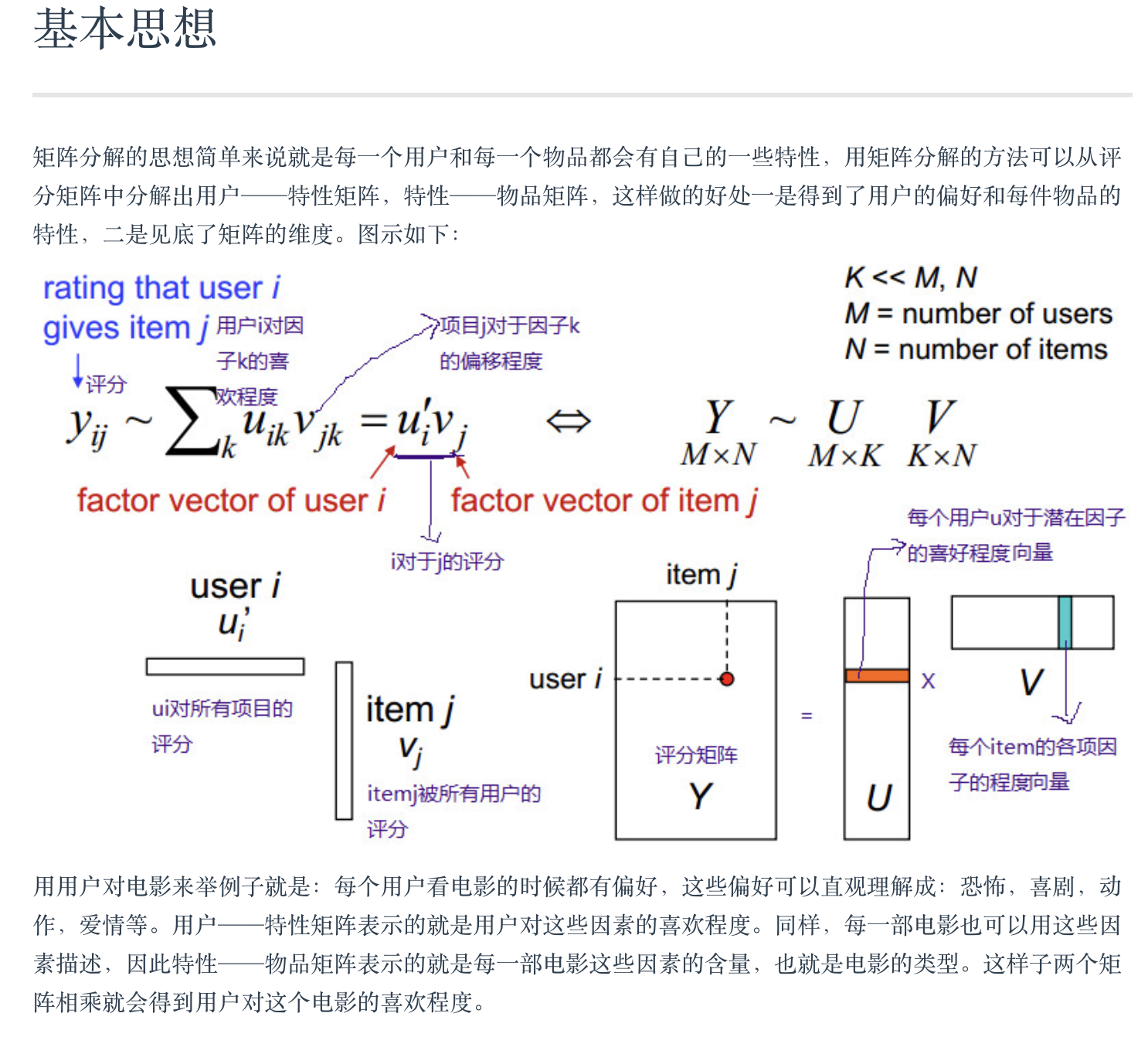http://nicolas-hug.com/blog/matrix_facto_4

import numpy as np import surprise # run 'pip install scikit-surprise' to install surprise from surprise.model_selection import cross_validate class MatrixFacto(surprise.AlgoBase): '''A basic rating prediction algorithm based on matrix factorization.''' def __init__(self, learning_rate, n_epochs, n_factors): self.lr = learning_rate # learning rate for SGD self.n_epochs = n_epochs # number of iterations of SGD self.n_factors = n_factors # number of factors def fit(self, trainset): '''Learn the vectors p_u and q_i with SGD''' print('Fitting data with SGD...') # Randomly initialize the user and item factors. p = np.random.normal(0, .1, (trainset.n_users, self.n_factors)) q = np.random.normal(0, .1, (trainset.n_items, self.n_factors)) # SGD procedure for _ in range(self.n_epochs): for u, i, r_ui in trainset.all_ratings(): err = r_ui - np.dot(p[u], q[i]) # Update vectors p_u and q_i p[u] += self.lr * err * q[i] q[i] += self.lr * err * p[u] # Note: in the update of q_i, we should actually use the previous (non-updated) value of p_u. # In practice it makes almost no difference. self.p, self.q = p, q self.trainset = trainset def estimate(self, u, i): '''Return the estmimated rating of user u for item i.''' # return scalar product between p_u and q_i if user and item are known, # else return the average of all ratings if self.trainset.knows_user(u) and self.trainset.knows_item(i): return np.dot(self.p[u], self.q[i]) else: return self.trainset.global_mean # data loading. We'll use the movielens dataset (https://grouplens.org/datasets/movielens/100k/) # it will be downloaded automatically. data = surprise.Dataset.load_builtin('ml-100k') #data.split(2) # split data for 2-folds cross validation algo = MatrixFacto(learning_rate=.01, n_epochs=10, n_factors=10) #surprise.evaluate(algo, data, measures=['RMSE']) cross_validate(algo, data, measures=['RMSE', 'MAE'], cv=5, verbose=True)